Debt Settlement vs. Bankruptcy: Which One Saves You More Money?
by Luke Homen
 Think about how much of your life revolves around debt right now. The stress of juggling bills, the constant worry about due dates, the feeling that no matter how much you pay, it’s never enough. That pressure isn’t just financial—it affects your health, your relationships, your future.
Think about how much of your life revolves around debt right now. The stress of juggling bills, the constant worry about due dates, the feeling that no matter how much you pay, it’s never enough. That pressure isn’t just financial—it affects your health, your relationships, your future.
Now imagine what it would feel like to have that weight lifted. No more collection calls. No more choosing between groceries and minimum payments. No more fear of opening the mailbox. Bankruptcy gives you that freedom. It’s not just about erasing debt; it’s about giving you back control.
Debt repayment plans might seem like the responsible choice, but they can keep you trapped for years, paying far more than you originally owed. Bankruptcy, on the other hand, stops the cycle immediately. Instead of pouring money into interest and late fees, you can start fresh—saving for a home, retirement, or simply living without financial anxiety.
If you’ve been fighting this battle for a long time and feel like you’re getting nowhere, bankruptcy isn’t a failure. It’s a tool designed to help people like you move forward. And moving forward is always the right choice.
At Convenient Bankruptcy, we’ve helped people just like you break free from the cycle of debt, rebuild their credit, and take back control of their lives. If you’re feeling trapped, our Tulsa bankruptcy attorneys are here to help you find the smartest financial path forward—one that saves you the most money and gives you peace of mind. Let’s explore your options. Call us at 405-296-0079, and a bankruptcy lawyer will contact you.
The Hidden Costs of Carrying Debt
Debt doesn’t just drain your bank account. It affects every part of your life:
- Constant Stress: More than half of people with medical debt say it has hurt their mental health. Anxiety, depression, and even physical illness are common side effects.
- Credit Score Damage: Missed payments and high balances can tank your score by 100+ points, making it harder to get a loan, rent an apartment, or even qualify for certain jobs.
- Lost Opportunities: Many people delay buying a home, going back to school, or starting a business because their debt holds them back.
Debt repayment plans might seem like a responsible solution, but in many cases, they cost more in the long run and leave you struggling for years.
Debt Settlement: The Price of Paying It Off Slowly
There are a few ways to try and manage overwhelming debt without filing for bankruptcy. But are they really the better option? Let’s take a closer look.
Staying in debt is expensive. Even if you’re making payments, most of your money is probably going toward interest, late fees, and penalties—not the actual debt. And the longer you stay in the cycle, the more you pay.
Think about what that means in the long run. Instead of saving for a home, retirement, or your children’s future, you’re handing over thousands of dollars to credit card companies and lenders. And if an emergency happens—a job loss, medical issue, or unexpected expense—you’re right back where you started, only deeper in debt.
At first glance, debt settlement might seem like a good alternative to bankruptcy, but it often ends up costing you more and hurting your credit for longer. Here’s why:
- No Guarantees – Creditors don’t have to accept a settlement. You could spend months negotiating, only to be left with the same crushing debt.
- No Court Protection – If any one creditor doesn’t want to settle, they can still file a lawsuit against you and seek to garnish you – even though you’re trying to pay your debts!
- Credit Score Damage – To settle debts, you usually have to stop making payments, which tanks your credit score—often by 100 points or more—and leaves you with late fees and penalties.
- Hidden Costs – Even if a creditor agrees to settle, the forgiven amount is often taxed as income, meaning you could owe the IRS money at tax time.
- Takes Years to Complete – Most debt settlement plans take 3–5 years, during which you’re still dealing with collection calls, lawsuits, and growing interest.
Bankruptcy, on the other hand, stops the stress immediately. It’s a legal process with clear protections—no endless negotiations, no tax surprises, and no dragging it out for years. Instead of staying stuck in financial limbo, you get a clean slate and the chance to rebuild faster and with less overall cost.
In the long run, bankruptcy doesn’t just save you money—it gives you back the future that debt is stealing from you.
Which Bankruptcy Option Is Right For You?
Most people avoid bankruptcy because they’ve been told it’s a financial death sentence. But in reality, it’s a legal tool designed to wipe out debt and give you a fresh start—often for far less than what you’d pay trying to tackle debt on your own.
Chapter 7 Bankruptcy: The Fresh Start Option
Chapter 7 bankruptcy is designed for those who need a complete reset. It wipes out unsecured debts like credit cards, medical bills, and personal loans, giving you a clean slate. The process is relatively fast—typically taking just a few months from start to finish. While your credit score will take an initial hit, most people find that they can begin rebuilding within a year or two. In fact, many filers see their credit scores improve faster than if they had continued struggling with overwhelming debt.
Chapter 13 Bankruptcy: A Structured Repayment Plan
If you have valuable assets you want to protect—like your home or car—Chapter 13 bankruptcy may be the better option. Instead of wiping out debts immediately, it creates an affordable repayment plan that lasts 3 to 5 years. At the end of the plan, any remaining qualifying debt is discharged. Chapter 13 has a smaller impact on your credit score compared to Chapter 7, and because you’re actively repaying a portion of your debt, creditors may view you more favorably when it comes to future lending.
Is Bankruptcy Really the Cheapest Option?
Bankruptcy isn’t always the most affordable solution—it depends on your situation. Factors like your income, the type of debt you owe, and whether you want to keep certain assets all play a role. In some cases, alternatives might be more cost-effective in the long run.
Before making a decision, it’s important to speak with a licensed bankruptcy attorney. They can help you understand your options, so that you can find one that better fits your financial needs.
Call Our Tulsa Bankruptcy Lawyers Today
You don’t have to spend another day drowning in debt. Bankruptcy isn’t the end—it’s a fresh start, and we’re here to guide you every step of the way. At Convenient Bankruptcy, we’ve helped countless people just like you break free from overwhelming debt and take back control of their finances.
Let’s talk about your options. A quick, confidential consultation could be the first step toward a debt-free future. Call our bankruptcy law firm at 405-296-0079 or fill out our confidential contact form and we will help you explore all your options.

Attorney Luke Homen is the President of Convenient Bankruptcy. He placed great value on helping individuals and families solve their financial challenges and achieve real financial freedom. His goal is to find a customized solution that fits each client’s unique situation. Luke has been practicing law since 2008, and was voted “Best Bankruptcy Attorney in Oklahoma” by The Oklahoman in the Reader’s Choice Awards.
